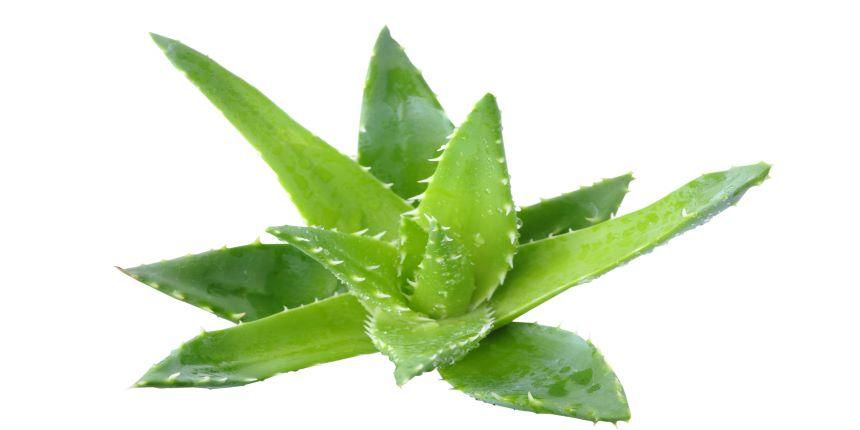- Home
- Trends
- Furniture And Decor
- Indoor Plants
- Aloe Vera Plant Indp
Top 10 Benefits of Using Aloe Vera
What’s the first thing that comes to your mind when you get a pimple? It’s applying aloe vera gel all over your face. Right? To your surprise, the aloe vera plant doesn’t just treat pimples or monstrous sunburns on your face, but it offers a plethora of medicinal benefits as well.
Table of Content
Aloe vera has a long history of medicinal use which dates back at least 6000 years, as per the NIH (National Institutes of Health). It is used for treating various conditions such as hair loss, wounds, cold sores, haemorrhoids, constipation, etc. In a nutshell, it's a complete package of healing benefits.
Keep reading to discover the major benefits of aloe vera trees and what the research concludes about its advantages.
What is Aloe Vera?
Aloe vera is a medicinal plant that is known for treating a myriad of ailments and health conditions for thousands of years. You can use aloe vera directly from the plant as it is quite safe and edible too. Or you can also buy it in gel form.
Aloe vera leaves contain the clear gel that you can find in aloe vera ointments, gels, and creams you purchase from the market. You can these products to treat several skin conditions. Furthermore, aloe is also sold in a liquid form or capsule so that you can consume it orally and promote health and well-being.
The plant is native to North Africa, the Canary Islands, and Southern Europe. Today, it's grown in tropical climates globally. Besides, it is also used beautiful home decor.
Now, this is just the beginning, there's a lot more to the use of aloe plants. So, keep on reading to discover the potential benefits and side effects of the plant.
Top 11 Benefits of an Aloe Vera Plant
Described below are the top 11 benefits of the aloe plant that will surprise you to the core:

1. Purifies Air
Do you know that aloe vera releases oxygen at night? No? Well, it is known as one of the best air purifying indoor plants that liberates significant amounts of oxygen while you sleep. Not only does it purifies the air but it also induces better sleep.
Inhaling fresh air and having a better sleep at night are sure to treat various health conditions. Therefore, having an aloe plant inside your home could do wonders for you! I personally recommend it as I am already reaping its benefits.
2. A Better Substitute to Mouthwash
According to a study published in the Ethiopian Journal of Health Sciences, scientists discovered that aloe vera extracts are utterly safe and highly effective in treating plaques. You can use aloe as one of the greatest substitutes for mouthwashes.
The plant has a natural ingredient containing a healthy dose of vitamin C that has the potential to block plaque. Moreover, it possesses the power to treat your swollen or bleeding gums. Hence, it can do wonders to your mouth's ill condition, if you have any.
3. Relief from Heartburn
GERD (Gastroesophageal Reflux Disease)is referred to as a digestive disorder that often causes heartburn. A review from 2010 suggested that if you consume 1 to 3 ounces of aloe gel during your meal, it can mitigate the severity of Gastroesophageal reflux disease.
Furthermore, aloe vera gels are capable of treating other digestive disorders as well. As the toxicity of the plant is quite minimal, it is recommended as a safe and gentle cure for heartburn.
4. Lowers Your Blood Sugar
Yes, you heard it right! Ingesting two tablespoons of aloe vera juice every day can reduce the blood sugars of people with type 2 diabetes. This was proved in a study conducted in Phytomedicine by the International Journal of Phytotherapy and Phytopharmacy.
This is an indication that aloe pulp extract may treat diabetes in the future. A study published in Phytotherapy Research confirmed these results.
However, diabetic people who consume glucose-lowering medicines need to be cautious while intaking aloe vera. Consuming aloe juice along with diabetic medications could perhaps reduce your glucose count to a critical level.
5. Keeps Your Skin Clear and Hydrated
This is one such perk of using aloe vera that almost everybody knows. Aloe vera cleanses and hydrates your skin perfectly. This might be due to the reason that the plant thrives in unstable and dry climates. In order to survive such an environment, the aloe vera leaves store water. The water-dense leaves amalgamate with a certain plant compound known as complex carbohydrates. Both the substances when combined together make a great moisturizer and pain reliever.
6. Potential to Fight Breast Cancer
A study discovered that the therapeutic properties of Aloe Emodin have a high potential of slowing the growth of breast cancer. Aloe Emodin is a compound found in aloe's leaves.
However, to advance this theory, more studies need to be done. So, if you don't have the plant yet, you can grow aloe vera at your home easily as they are easy to grow.
7. Heals Your Heels
Most of us don't pay attention to the ugly heels. Not only do they look ugly but they may also lead to serious infections if it isn't taken care of. The pores or the cracks in the heels fill themselves with dirt and other particles. This may cause serious injury to your heels that might lead to severe pain.
Why am I talking about this?
Because aloe vera gels can be helpful here. Before you go to bed, apply the aloe gel all over your feet and put on cotton socks. Believe me! It will do wonders for your feet. If you don't have aloe gel, you can use aloe vera leaf.
8. Aids Digestive Issues
Although very few studies claim that aloe vera may help with conditions such as irritable bowel syndrome (IBS) and constipation they might be effective in curing IBS. The study revealed that aloe vera was successful in improving systems related to IBS when compared to the placebo. However, more researches are still needed in order to support the findings.
Other researchers have also claimed that aloe vera may be supportive in preventing stomach ulcers. The study revealed that aloe vera was successful in stopping the growth of Helicobacter pylori bacteria, which are the sole cause of stomach ulcers.
However, while taking aloe orally, a person must take precautions. It's crucial to intake a limited dose of aloe vera because of the following potential negative risks, consisting of:
- Carcinogenicity
- Mutagenicity (a chemical having potential to cause a cell mutation)
- Cytotoxicity (cell toxicity)
To understand this completely, scientists have to carry out more researches on consuming aloe vera orally.
9. Treats Canker Sores
A source in 2012 suggested that aloe vera acted as a catalyst to the healing of ulcers when people applied aloe over them. Besides, it also increased the healing of canker sores and reduced pain.
Another study from 2012 also backed up this finding. However, as per this study, aloe wasn't as effective as a corticosteroid- a standard treatment for canker sores. Still, the maximum number of people who took part in the research reported that they were utterly satisfied with the results of either treatment.
10. Heals Wounds
If you have got minor burns or wounds, aloe may be able to heal them because of its soothing properties. A recent study showed some promising results for aloe's significance in curing wounds of the skin. The review comprised studies that showed that aloe can aid in preventing or healing conditions such as:
- Genital herpes
- Postoperative wounds
- Skin ulcers
- Chronic wounds
- Psoriasis
- Cracked nipples
- Burn wounds
The researchers recommend people use aloe vera only when prescribed or OTC (Over-the-counter) medicines to treat such illnesses.
Risks/Side Effects Of Aloe Vera
If you have the right aloe vera type plants, there's a lower chance of getting any side effects. According to the Food and Drug Administration, consuming aloe vera is safe but it doesn't regulate any of its products. Hence, it's completely up to you how you use it. In case you face any form of adverse reaction, you should report to the doctor and stop using it immediately.
However, quite rare, some people may suffer some allergic reactions such as swelling, redness, or a rash to Aloe Vera. In case such symptoms arise, you should avoid using it completely. If the signs worry you, you should consult a doctor.
Although aloe vera gels may hold some microbial properties, you must avoid using them on the infected skin. It is so because it may unsettle the process of healing while making the infection worse. However, if you aren't allergic to aloe, it can do miracles on your skin.
Where to Buy Aloe Vera Plant
Aloe Vera Plants are easily available at floral shops, garden centres, and nurseries. In fact, you can even shop for aloe vera flowers or trees online too. Aloe plants are quite low maintenance and hence, they are easy to grow.
All you need to ensure is that you have kept your plant in a place that receives enough sunlight and warmth. They demand about six hours of sunlight a day. However, the younger shots need less direct sunlight when compared to the mature ones.
The Takeaway
An aloe vera plant could be beneficial in various ways. Not only does it treat severe skin illness, but it is also highly effective in curing several medical conditions. It helps in treating cancerous cells, plaque, wounds, digestive issues, heartburns, and more.
Aloe plants can be used in a variety of ways and their extracts can be employed to create various products. Researchers are still trying to find new methods to put this gooey plant to use. To conclude, aloe plants are highly recommended to keep at home.
Ready for a home transformation?
Let our designers assist you!
Recent Posts
No, an Aloe plant may seem like a cactus, but it belongs to the family of Asphodelaceae.
Aloe vera flowers contain the concentration of amino acids that impart nutritional and cosmetic interest. Most of them have beneficial effects on the skin such as softening and moisturizing. Moreover, aloe vera flowers are the building blocks of protein that are pretty advantageous in the manufacture and repair of muscle tissue.
The soil of aloe vera trees may turn white because of the following reasons: -Excessive watering -Improper drainage system -Little or overexposure to sunlight Apart from the above-mentioned reasons, sudden changes in temperature and Deficiency in salts, improper soil mix, excessive minerals/fertilizers, molds, and bugs could also be the cause of aloe vera soil turning white.
No, Aloe plants are frost intolerant and hence, they can’t survive living outside in the winter. Otherwise, it may die. However, if your place gets a mild winter with no freezing, then you can keep it outside.
The scientific or botanical name of aloe vera is Aloe barbadensis miller.
To grow an aloe vera faster, you must put it in the right place. Aloe vera trees love sunlight (but excessive of that can kill it too). Create a proper drainage system and keep it in a room with a temperature of 13-27 degrees celsius. When you keep it in the right conditions, it will surely grow faster.
Aloe plants are mostly edible and good for the skin. But not all aloe vera are edible. Aloe vera has different species and three out of them are highly poisonous- Aloe Ballyi, Aloe Elata, and Aloe Ruspoliana. Their leaf sap furnishes off a strong ratty odour.
Yes, the aloe plant needs a lot of sunlight. To be more precise, it needs about a six-hour of direct sunlight. But a lot of sunlight may also cause harm. So, if you really want to keep your aloe plant safe and healthy, keep it at a place where the plant can receive indirect sunlight. This will reduce the chances of plants turning grey.
Yes, if you have the common species of the aloe plant that isn’t poisonous, you can absolutely use aloe vera straight from the plant.
Related Category
- Balcony
- Bedroom
- Home Decor
- Living Room
- Outdoors

































